15+ Outstanding Places You Should Visit in Krakow Poland (2025)
Welcome to Krakow, one of Poland’s most beautiful and historic cities. If you plan a trip to this charming city, we can help you learn about the best places to visit in Krakow. As travelers who have spent many days exploring the nooks and crannies of Krakow, we can assure you that this city will leave an unforgettable impression on you.
We understand that if you are a first-time visitor to Krakow, you may be concerned about taking advantage of the best things to do and see. You may also be worried about only experiencing touristy activities and not getting an authentic taste of this beautiful city.
Let us help you. In this guide, we share with you the top places to visit in Krakow that will give you a well-rounded experience of this historic city. This post explores the many outstanding places to visit in Krakow, Poland, beyond the great Market Square. Read along to learn about where to go in Krakow and what to see in this fascinating city.
The Places Where We Go contains affiliate links and is a member of the Amazon Services LLC Associates Program. As an Amazon Associate, we earn from qualifying purchases at no extra cost to you when you purchase using one of these Amazon links. Read our disclaimer and privacy policy for more information.
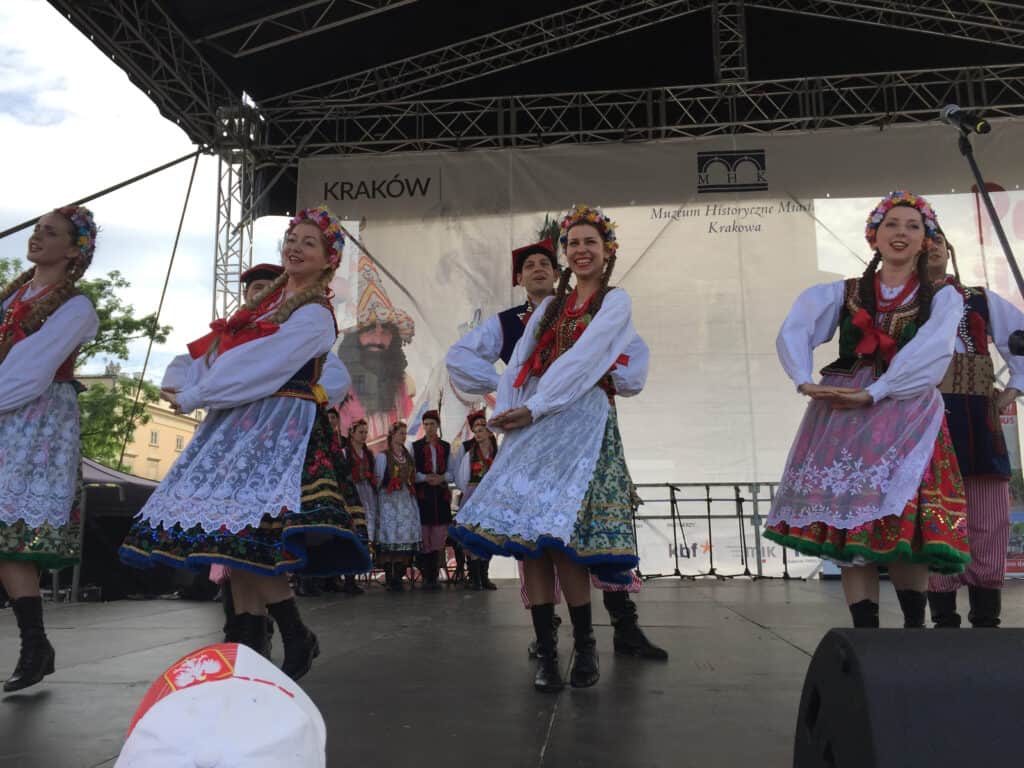
An introduction to Krakow
Kraków is the 2nd largest city in Poland. Located on Poland’s longest river, the Wisła, this prior capital of Poland dates back to the 7th century.
It’s the center of a city with a rich history dating back to the 13th century when attacking Tatars invaded the city and pierced the town crier’s throat with an arrow. A century later, Kraków was the nation’s capital and retained this designation until the 16th century.
Krakow’s dark history is reflected in the Jewish ghetto memorial and Auschwitz-Birkenau concentration camp. However, amidst these dark times, Krakow also offers green spaces like Planty Park, providing a soothing atmosphere for contemplation and reflection.
The Old Town of Kraków earned the UNESCO World Heritage Site designation in 1978. It was one of the first 12 sites granted this special recognition. The city attracts more than 13 million visitors annually who experience the many places of interest in Krakow, Poland.
Outstanding places to visit in Kraków
1. The Great Market Square (Rynek Główny)
The bustling heart of Krakow’s UNESCO-recognized Old Town, Market Square, has been the epicenter of activity since the Middle Ages. This lively square features bars nestled in historical cellars, charming on-street cafes, and an array of remarkable landmarks, including the Renaissance-style Cloth Hall and the majestic Town Hall Tower.
Rynek Glowny, the largest medieval market square in Europe, is mesmerizing with exquisite architecture spanning the medieval, Renaissance, and Baroque periods. The square is enchanting, with outdoor cafe tables to savor the atmosphere and witness the rhythmic clatter of horse-drawn carriages over the cobblestones.
It’s no wonder that Krakow’s Christmas market is also set up here, as the square’s fairytale ambiance perfectly complements the festive season.
Don’t miss a special treat – every hour, a lone trumpeter stationed in one of St Mary’s Basilica towers plays the bugle call, a tradition that dates back to 1392.
Be sure to learn about the many great places to visit in the main square in our post 11+ Outstanding Places You Must See in Kraków Market Square.
2. Wawel Castle
After the great market square, perhaps the most significant place you’ll want to visit in Krakow is Wawel Royal Castle (Zamek Królewski na Wawelu). It is close to the market square, at the south end of the old town.
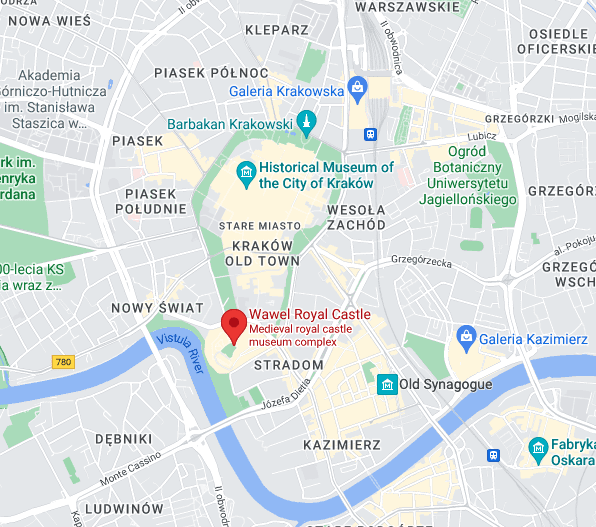
This castle was home to the Polish monarchy, one of the largest royal castles in Europe. Over the decades, numerous elements enhanced the structure, so you’ll see a mix of architectural styles. The castle overlooks the Vistula river – a lovely spot for a castle.
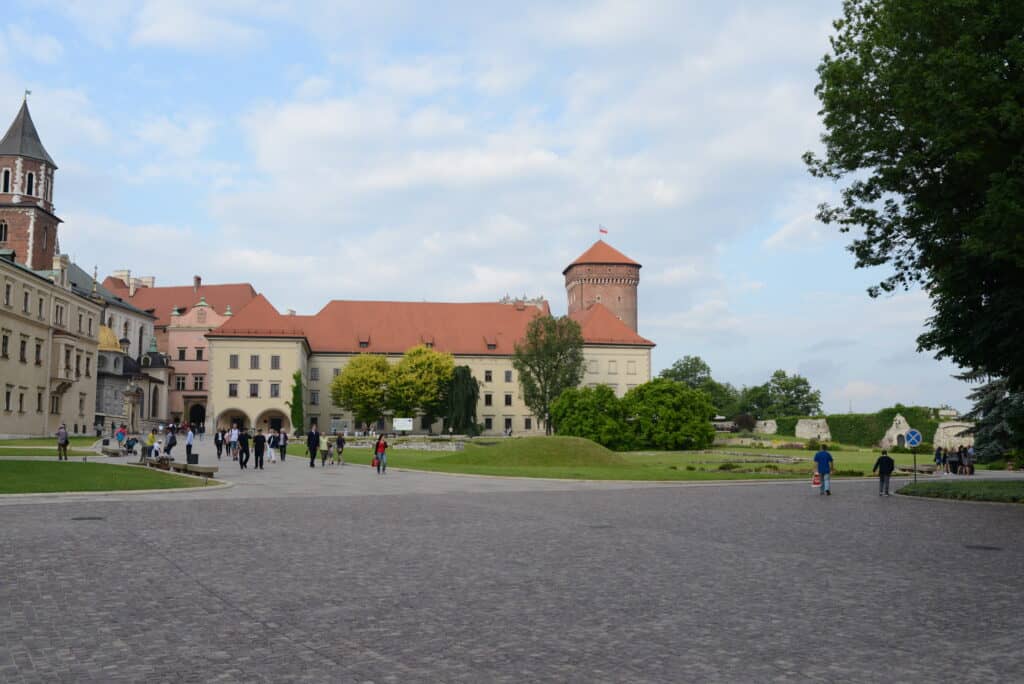
Wawel Castle Areas to Visit:
Crown Treasury and Armoury
This permanent exhibit showcases Poland’s equivalent of the Crown Jewels. It’s a homage to the historic institutions from the castle’s history, featuring precious historical artifacts of the official state treasure. The display includes jewelry, gold and silver items, textiles, coins, state insignias, and royal banners. A significant piece is a mantle of the Order of the Holy Spirit, gifted to Jan III Sobieski from Louis XIV upon the victory of the Battle of Vienna. The overall highlight is Poland’s Coronation Sword, used between 1320 and 1764 and is one of the most important relics of Polish history.
It is worthy of note that after the third partition of Poland in 1795, the Prussians looted the Crown Treasury, melted many of the contents, and deprived us of witnessing the complete former splendor of the collection.
The Lost Wawel
This exhibit showcases archeological aspects of the castle, which focus on the restored remains of the Rotunda of the Blessed Virgin Mary, Krakow’s first church, royal kitchens, and coach house. You’ll also see virtual recreations of what Wawel Hill looked like over one thousand years ago.
State Rooms
These rooms are ornate and spacious high-ceilinged rooms. Back in the day, ceremonial events occurred here, as did the Sejm and senate sessions. Royal audiences, wedding receptions, and balls occurred within the stateroom walls. Staterooms are available to visit over three levels. You’ll see fantastic artwork and furniture from the 16th century.
Royal Private Apartments
This exhibit goes beyond the State Rooms tour and showcases more of the magnificent interiors of the castle. Visitors can see the apartments only on a guided tour – available in Polish and English, with a maximum of 16 people per group. You’ll see how the royals lived as you view the detailed Gothic and Renaissance rooms.
Wawel Recovered
After Poland’s final partition in 1794, Russian and Prussian forces seized Wawel Hill and demolished many buildings and medieval churches. Nearly a century later, work commenced on the conservation of the castle and the restoration of the cathedral. The exhibit, ‘Wawel Recovered,’ focuses on the restoration efforts to preserve the former royal residence.
Art of the Orient Ottoman Turkish Tents
There is a long history of contact between Poland and the Middle East, which influenced Polish customs. From a history of military conflicts and commercial relations, many artistic elements found their way from Turkey and neighboring regions into Poland – and you can see many examples in this exhibit. It includes tapestries, fine carpets, silks, and weapons. You’ll see items ranging from ceremonial objects to everyday items. Among the things displayed are artifacts won by Poland’s King Jan III Sobieski, who defeated the Turkish army and captured the saber of the Grand Vizir, Kara Mustafa.
Royal Gardens
There is also a royal gardens area to explore. Be sure to step into this area, as the grounds are spectacular.
Overall, the grounds of Wawel Castle were awe-inspiring, and our notes notwithstanding, the castle is very much worth visiting.
Tickets for Wawel Castle
The experience of getting tickets here can be long, so you should plan accordingly. When we arrived at the ticket booth, maybe 20 to 30 people were in front of us. It took over 45 minutes of standing in the sun before we got to the front of the line.
Entry for the different sections of the castle is a la carte and time-stamped. And because the tickets are time-stamped, the order in which you select to visit the places on the castle grounds matters. So make sure you give yourself ample time for each part of the castle you visit.
There are free tickets for guided groups, but these are limited; once they’re gone, they’re gone. The free tickets are only available at the ticket window. Advance tickets before the day of your visit are available online, but only within the week of your visit. There are limited tickets available per day.
When you visit, you cannot enter with backpacks, large bags, baby carriers with frames, strollers, umbrellas, and Nordic walking sticks. If you have such items, you can check them in the Checkroom in the arcaded courtyard before entering the exhibitions.
3. Wawel Cathedral
There is a cathedral on the grounds at Wawel Castle, and it is free to enter. Some regard it as the most important building in all of Poland. This was where coronations took place for nearly every Polish king and queen.
When you enter Wawel Cathedral, you’ll see a collection of enormous bones hanging on the entrance’s left side. We’ll get to those in our next section.
In the middle of the cathedral is the tomb of the former Bishop of Kraków, Saint Stanislaw. Inside are 18 chapels, everyone as ornate as you can imagine in an important cathedral.
This cathedral was where Karol Wojtyla served as archbishop before becoming Pope John Paul II. Monarchs from the 12th-13th century are buried here.
Be prepared for a no-photo rule inside the cathedral nor elsewhere on the inside places of the castle grounds.
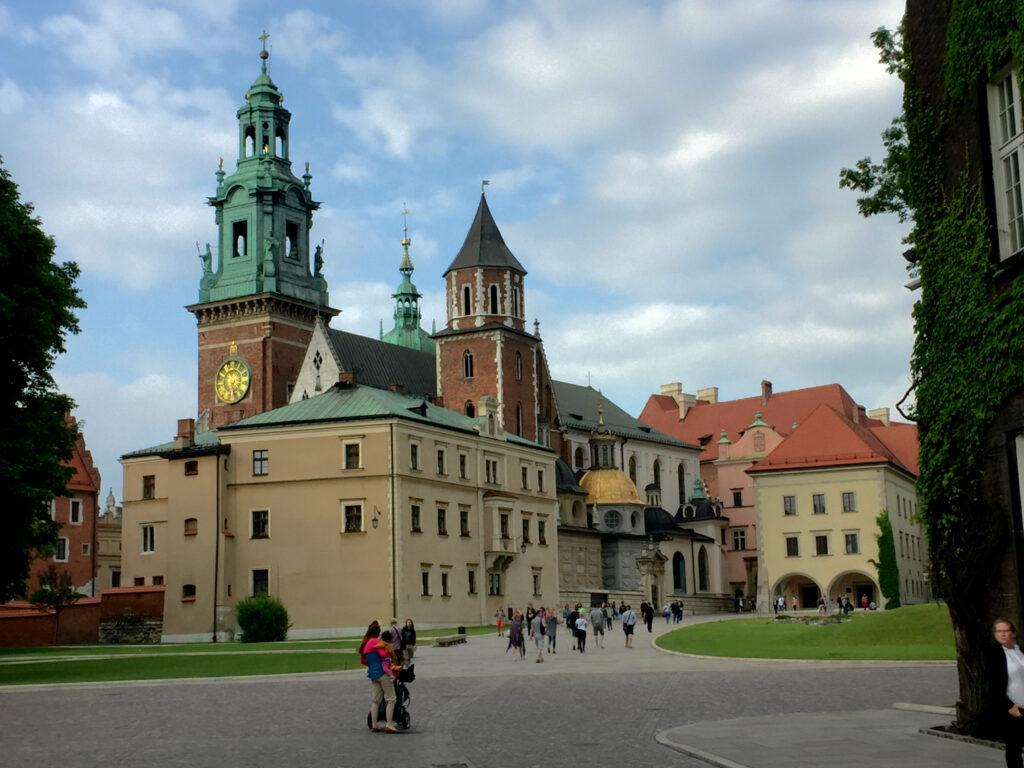
The Legend of the Krakow Dragon
Wawel Cathedral is the resting place for many deceased members of Polish royalty. However, Wawel also has several bones that are not human and are said to be all that remains of a dragon who once terrorized the area. This dragon’s name is Smok Wawelski or, in English, the Wawel Dragon.
Starting outside the castle, there is a dragon made of bronze that breathes fire every five minutes. Beneath the castle, a dragon’s lair exhibit lets visitors explore the once-upon-a-time home of the legendary dragon.
So, let’s take a moment and tell you one of the stories of the Wawel Dragon. The legendary beast lived in a den under Wawel Hill and terrorized the people of King Krak’s town. Some say the dragon demanded ransoms of cattle. Others say the dragon only devoured virgins – requiring one every month. Living under this terror, nobody could get rid of the dragon.
That is until a young cobbler named Krak came up with a plan. He put a bait of sulfur inside a dead sheep, leaving the snack for the dragon to eat. The dragon took the bait, became violently ill, and went to drink water from the Vistula River. But since water cannot extinguish burning sulfur, the gases caused the dragon to explore.
The townsfolk rejoiced. The shoemaker received a great reward, married a princess, became King, and built a castle over the dragon’s cave. The townspeople named the city in his honor.
Today, the sculpture of the beast can be seen by the Vistula River near the Dragon’s Den at the foot of Wawel Hill.
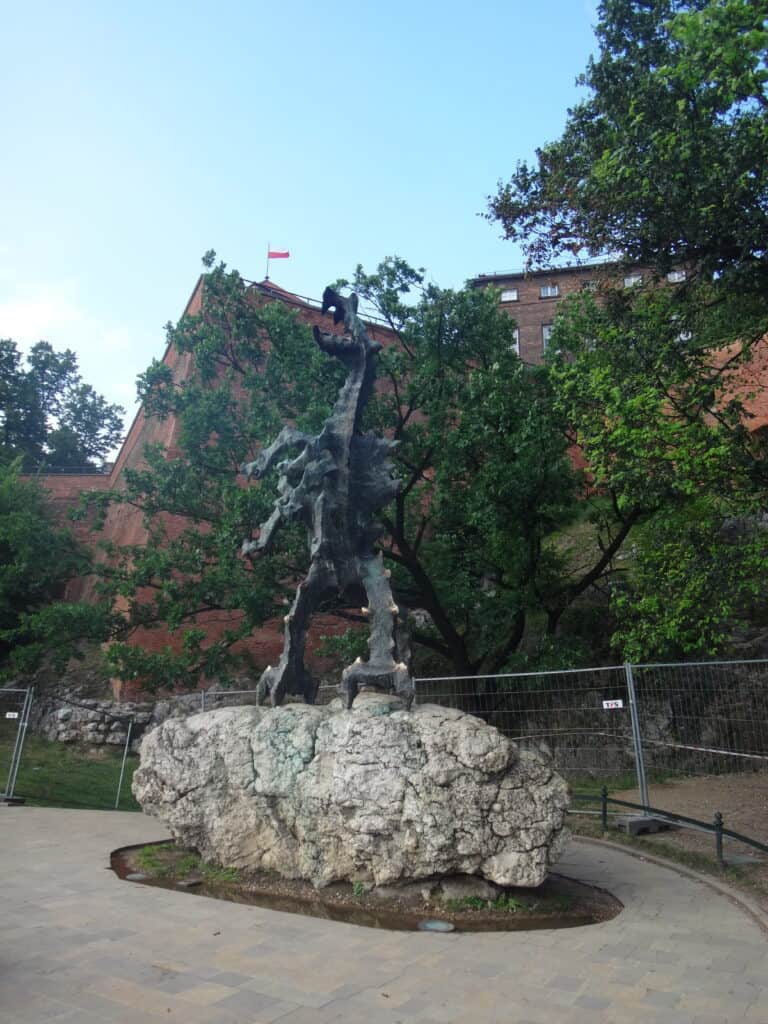
And the story is more than just a myth. There are such real bones at Wawel, and these are the ones we mentioned that hang just outside Wawel Cathedral., but they are thought to be the fossilized bones of a whale or mammoth. Still, some believe the bones have a magical property and protected the city from destruction during the centuries of Polish partition and WWII.
Whatever their origin, they have been at Wawel for centuries.
4. City Tour
If you want the help of a local in deciding what to visit in Krakow, a tour is an excellent way to see the city. We booked a golf cart tour that took us around parts of the town one afternoon.
Krakow By Golf Cart Private Tour
Rated 5-stars on Viator
Most city tours will highlight the Old Town, the Kazimierz district, the Jewish Ghetto of WWII, Schindler’s Factory, several Catholic churches, Jewish synagogues, Podgorski Market, and street art.
5. Kazimierz District – The Former Jewish Quarter
This area is located south of Old Town and was the central area of Jewish life for over 500 years until its destruction during WWII. The area did not receive nurturing during the following communist era and fell into further ruin.
Today, the district has rebounded and is a bustling bohemian area filled with historical sites, art galleries, and cafes. If you want to visit a place in Europe that provides a sense of the pre-war Jewish culture, this is the place to visit.
Jewish Synagogues
Your tour may also take you to several Jewish Synagogues in Krakow. While entrance to most Catholic churches is free, do not be surprised to be asked for payment to enter the synagogues.
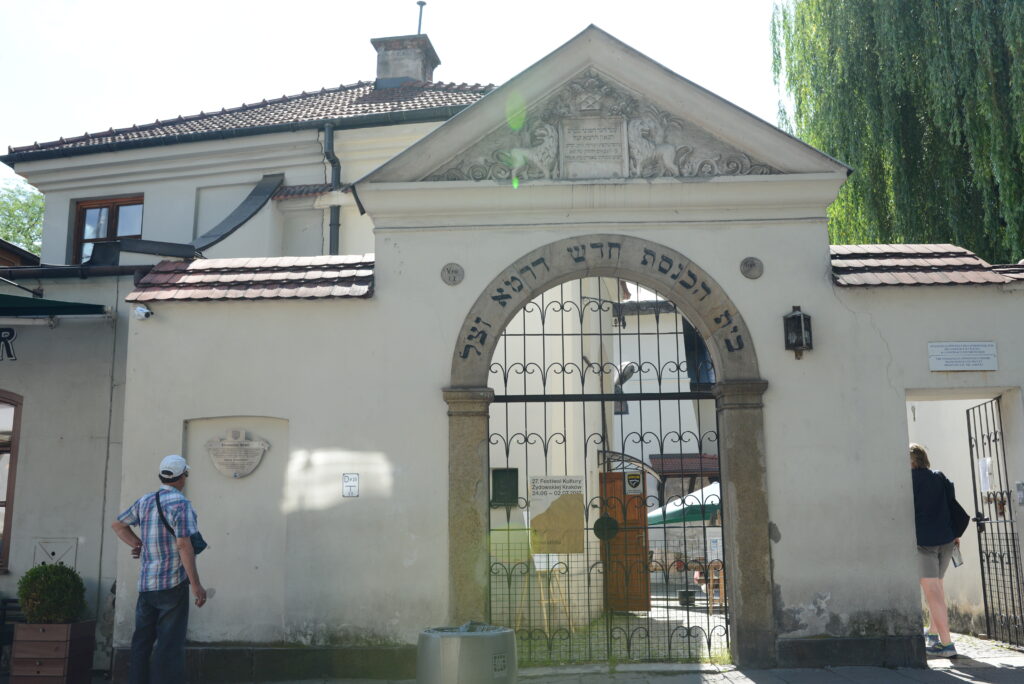
6. Catholic Churches of Krakow and Saint Michael Basilica
We stopped in front of a few Catholic churches, which we could enter and visit.
Among these were the Saint Michael the Archangel and Saint Stanislaus the Bishop and Martyr Basilica, known as Skałka, which means “a small rock” in Polish. The church stands where Saint Stanislaus of Szczepanow was slain as King Boleslaw II The Bold ordered in 1079. Upon this edict, the king was exiled. The church has been part of a monastic community since 1472, and it is one of the most famous sanctuaries in Poland.
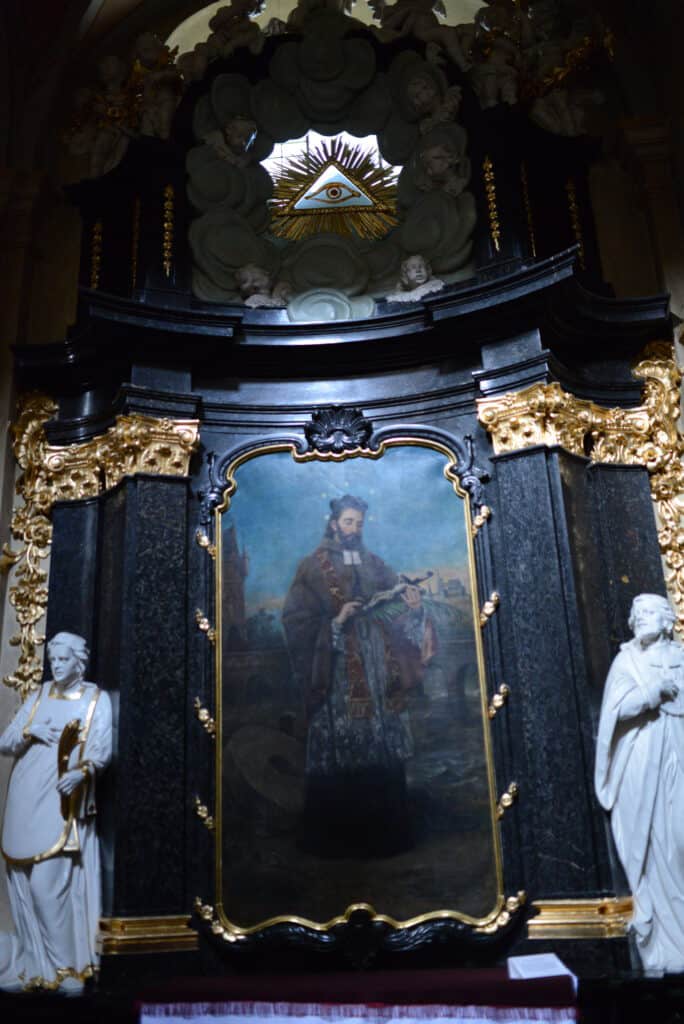
Interestingly, every elected King of Poland had since made a pilgrimage to Skalka on the eve of his coronation as penance for the disgraceful action of Boleslaw II.
Many distinguished Poles are buried in this basilica, including.
- Karol Szymanowski (1882–1937), composer and pianist
- Czesław Miłosz (1911–2004), poet and essayist, Nobel Prize recipient
Outside the basilica, a fountain dispenses water from which pilgrims drink. There is also the open-air Altar of the Three Millenia outside with seven statues of important Polish historical figures, including:
- Augustyn Kordecki (1603–1673), before Jasna Góra Monastery during the Siege of Jasna Góra
- Jadwiga of Poland (1374-1399), the first female monarch of the Kingdom of Poland
- Stanislaus of Szczepanów (1030-1079), bishop of Kraków and martyr
- Pope John Paul II (1920-2005), archbishop of Kraków, elected Pope in 1978
- Faustina Kowalska (1905-1938) was a nun whose mystical revelations inspired the Divine Mercy devotion
Six of the seven are venerated as saints in the Catholic Church.
7. National Museum in Krakow
The National Museum in Krakow features extensive collections and three permanent exhibits west of the market square area. These include:
- 20th-century collection of Polish art spanning paintings, sculptures, and more.
- Military Exhibition: which showcases over 1500 artifacts of Poland’s military history
- Decorative Arts and Crafts Gallery – featuring works from the Middle Ages to the present day.
Get Tickets for Old Town & National Museum Private Tour
8. Sanctuary of Divine Mercy
The Sanctuary of Divine Mercy is located a bit south of the city center in a suburb of Krakow. It is the resting place of Saint Faustina.
In Catholic culture, devotion to the Divine Mercy is a holy practice. In the modern church calendar, the first Sunday after Easter is known as Divine Mercy Sunday and has its roots here in Poland.
The Shrine of Divine Mercy is a popular pilgrimage site for Catholic pilgrims.
Saint Faustina entered the Congregation of the Sisters of Our Lady of Mercy at age 20. She received an apparition of Jesus on the first Sunday of Lent in 1931 at her convent in Plock, Poland. The image she described is the image we see depicted today as the Divine Mercy image of Jesus.
She said that it was Jesus who instructed her to paint an image in a pattern shown to her with the inscription, “Jesus, I trust in you.” and asked for the veneration of the image throughout the world. Saint Faustina herself did not paint the image but had her spiritual director hire an artist. The original image is in Vilnius, Lithuania, today, where Sister Faustina served until March 1936.
Saint Faustina died in Krakow. After her death, Pope John Paul II officially designated Divine Mercy Sunday and canonized Siter Faustina on Divine Mercy Sunday in 2000. Today, Catholics celebrate her feast day on October 5 each year.
The sanctuary includes a relatively new basilica and the 19th-century convent where Saint Faustina Kowalska saw a vision of Christ. On site is also the “house of St. Faustyna,” where items from her life are displayed. The original church on the grounds contains the saint’s relics and is visited by nearly 2 million pilgrims yearly.
9. Polish Aviation Museum
The Polish Aviation Museum is one of the largest aircraft museums in the world. Opened in 1964, it resides in the former Kraków-Rakowice-Czyżyny Airport.
The museum’s collection highlights aviation history, as shown through its extensive collection of aircraft and machinery. Specimens include gliders, fighter jets from World War I through the Cold War, and anti-aircraft weaponry. Some artifacts tell the story of the Polish Air Force through displays of uniforms and military documents.
If you love aviation history, this is one of the best museums you’ll visit anywhere in the world.
Plan on several hours to view the collection.
10. Schindler’s Factory and MOCAK
The Oskar Schindler Enamelled Goods Factory reopened to the public in 2010. Made famous by the Steven Spielberg film Schindler’s List, this museum highlights Krakow during Nazi Occupation 1939-1945 in a permanent exhibition.
The experience takes visitors through many historical events:
- Life during the German occupation
- The fate of the Jewish people
- The underground resistance movement in Krakow
- Media including radio and film recordings and photos
- Archival documents
A large part of the space is the home of MOCAK – a contemporary art museum.
At least 2 to 2.5 hours are recommended for this visit. And it’s recommended to buy tickets in advance.
Schindler’s Factory Guided Tour in Krakow
Purchase Tickets
11. Ghetto Heroes Square
Ghetto Heroes Square (Plac Bohaterów Getta), formerly known as Plac Zgody, is a poignant tribute to the Jewish deportees. This memorial, conceived by local architects Piotr Lewicki and Kazimierz Łatak, features 70 empty chairs meticulously arranged across the open space. Each chair serves as a chilling reminder of the furniture, luggage, and personal belongings left behind in this square during the harrowing deportations and subsequent destruction of the ghetto in 1942 and 1943.
Ghetto Heroes Square has become a significant landmark in Krakow, drawing visitors worldwide. It is a key destination for sightseeing tours in the city, especially those that delve into the historical narrative of Krakow’s occupation under Nazi rule.

Fred Romero from Paris, France, CC BY 2.0 https://creativecommons.org/licenses/by/2.0, via Wikimedia Commons
Book a Tour: Krakow Jewish Quarter Private Tour, Kazimierz and Ghetto
Rated 5 stars on Viator
Explore the rich history of Krakow’s Jewish Quarter on a captivating and personalized private guided walking tour. This Jewish Heritage tour is perfect for travelers interested in European history and those seeking to connect with their Jewish religious and cultural heritage. A knowledgeable guide will lead you to the hidden gems of the Jewish Quarter, including stunning synagogues and cemeteries that hold centuries of stories.
12. Wieliczka Salt Mine
The remarkable Wieliczka Salt Mine lies located just 13km southeast of Kraków’s city center, in the charming town of Wieliczka. Nestled in a tranquil grassy valley, this hidden gem stretches over 300 meters into the salt rock veins beneath the Earth’s surface. It is considered the world’s longest active salt mine and an extraordinary blend of industry and art.
Dating back to the late 1200s, the discovery of rock salt in Wieliczka marked the beginning of a remarkable tale of human achievement. Over the centuries, this subterranean labyrinth has witnessed the extraction of almost 300 kilometers of navigable tunnels. What sets the Wieliczka Salt Mine apart, however, is not just its sheer size but also its stunning artistic wonders. Within its depths, visitors are captivated by chiseled salt-rock statues that transport them to a world reminiscent of fantasy novels. Additionally, intricate religious projects awe both engineers and art enthusiasts alike.
The crown jewel of the mine’s 2,400 chambers is the breathtaking Chapel of St. Kinga. This magnificent chamber is dedicated to the legendary Princess Kinga of Hungary, who is said to have brought salt mining to Poland through a miraculous event. Legend has it that she tossed her engagement ring into a mine in modern-day Romania and, amazingly, retrieved it from the ground in Wieliczka. This event surprised the local miners and led them to discover the abundant salt veins beneath Wieliczka’s surface. Today, the central chamber of the mine serves as a working Catholic chapel, paying homage to Kinga’s miracle and leaving visitors in awe of its beauty.
The wonders of the Wieliczka Salt Mine are a genuinely extraordinary testament to human ingenuity and artistic expression.
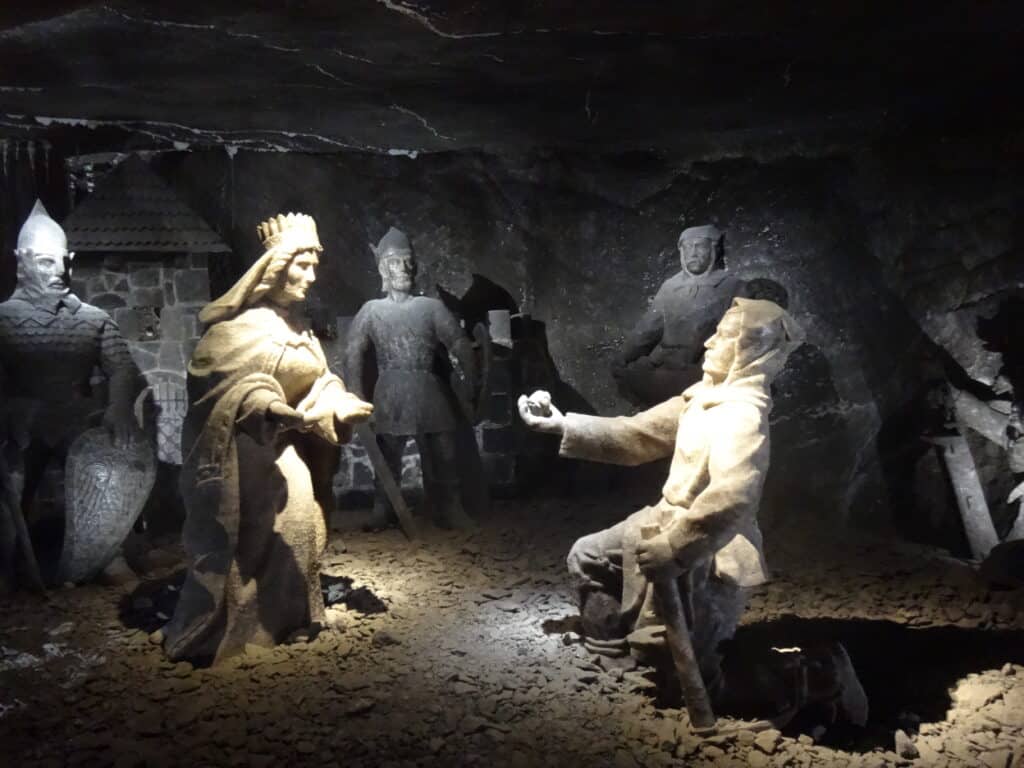
Book a Guided Tour of the Wieliczka Salt Mine and Transfer from Krakow
13. Krakow Stained Glass Museum
The Krakow Stained Glass Museum, located in S.G. Żeleński’s historic studio, offers a one-of-a-kind experience to visit an active stained glass windows workshop. Witness master artists at work, learn about the artistic process and admire stunning designs from over a hundred years of history.
It is known as the ‘cradle of Polish stained glass art,’ where renowned artists like Wyspiański and Mehoffer once collaborated. Guided tours showcase outstanding examples of stained glass creations.
Today, this is one of the largest stained glass studios in Poland. Visiting is possible with a guided tour lasting approximately 45 minutes.
Stained glass workshops can be arranged with a master and are available in Polish, English, German, or French).
14. Traditional Polish Pierogi Cooking Class in Krakow
Discover the traditional essence of Krakow’s culinary scene with a traditional Polish pierogi cooking class. You’ll take your taste buds on an immersive journey as you explore the local farmer’s market for the freshest ingredients. Learn the art of crafting authentic pierogi and delve into the rich cultural traditions and conversations surrounding mealtime.
Suitable for vegetarians and those with simple allergies, this small-group activity ensures personalized instruction. Indulge in Polish beer, tea, coffee, and snacks as you uncover the secrets of this beloved dish. With this unforgettable experience in the warmth of an authentic family home, you’ll make lasting memories and take home an addition to your cooking repertoire.
Check Availability for Traditional Polish Pierogi Cooking Class in Krakow
15. Jagiellonian University
The Jagiellonian University in Krakow, Poland, is not only the oldest in the country but also one of the oldest continuously operating universities in the world.
Founded in 1364 by King Casimir III the Great, it has gained prestige as Poland’s top destination for higher education. The university’s campus is spread throughout the city, with its oldest part, Collegium Maius, situated in the charming Old Town.
Step back in time as you enter through the unassuming gate and discover a beautiful bricked yard with arcades. Collegium Maius houses a museum dedicated to the university. This hidden gem is worth a stop to experience the atmosphere of the past.
To delve deeper into the history and significance of the Jagiellonian University, you can join the highly-rated Private Walking Tour of Krakow Old Town led by a local historian with a PhD. Book your tour here.
Food and Drink Stops in Krakow
Town Hall Tower Bar
The underground tavern beneath the Town Hall Tower is a historic place to enjoy libations. It’s a place where people have been getting tipsy, or just plain drunk, for over a thousand years. There’s no reason to stop that joyful tradition.
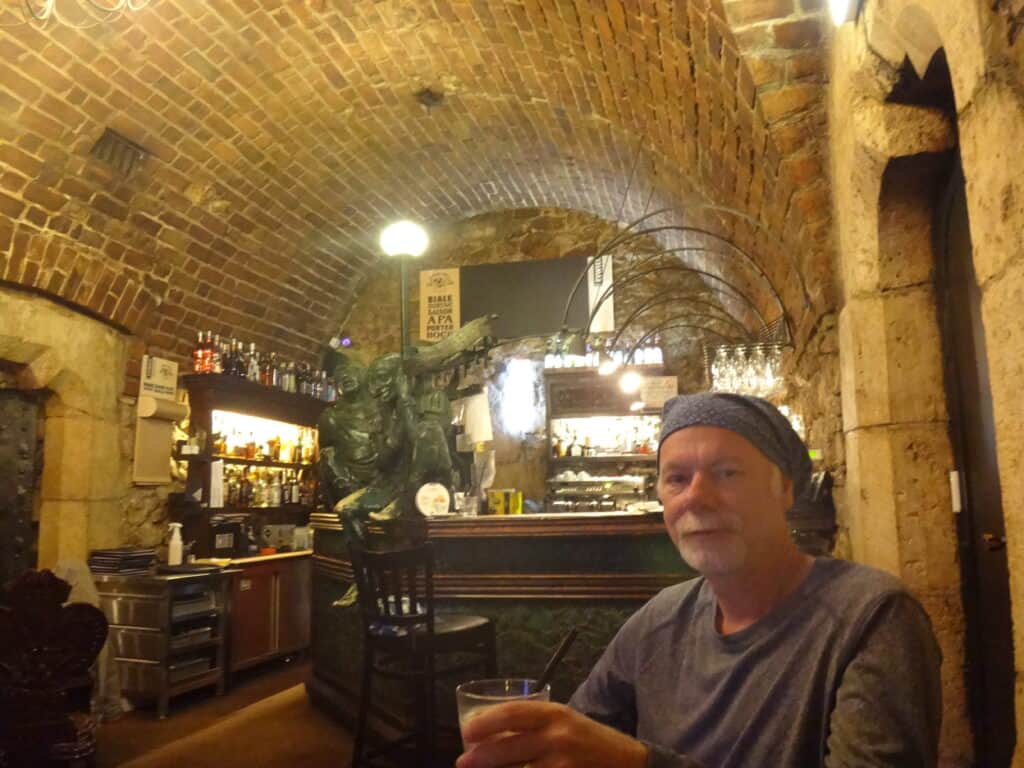
Stara Zajezdnia Krakow By DeSilva
If you’re a beer fan, the Stara Zajezdnia Krakow is a must-stop. This one abandoned tram depot has found new life as the largest brewery and beer hall in the city. Beer choices are ample – from traditional lagers and ales to fruit-flavored beers. Visit here for a tasty brew while enjoying pub food and watching sports on the flat-screen television.
Budget Eats at Krakow Galeria
Hit the food court at Krakow Galeria. We enjoyed salmon with all the sides you could throw on your place – spinach, gnocchi, slaw, and barley salad. All this was less than $5 a plate during our visit. It was such a bargain; we ate here more than once.
Fine Dining at Pod Baranem
Our last meal in Poland following three weeks of travel was at this restaurant. It was tied in the top two meal experiences during our travel to Poland. The establishment had the most professional waiter staff we have encountered. Food servings were superb. Our selections included mushroom soup in a bread bowl, vegetarian stuffed cabbage, Black Forest torte, and a bottle of Polish wine.
For a great dinner in Krakow, visit Pod Baranem. It is one of the finest restaurants in the city.
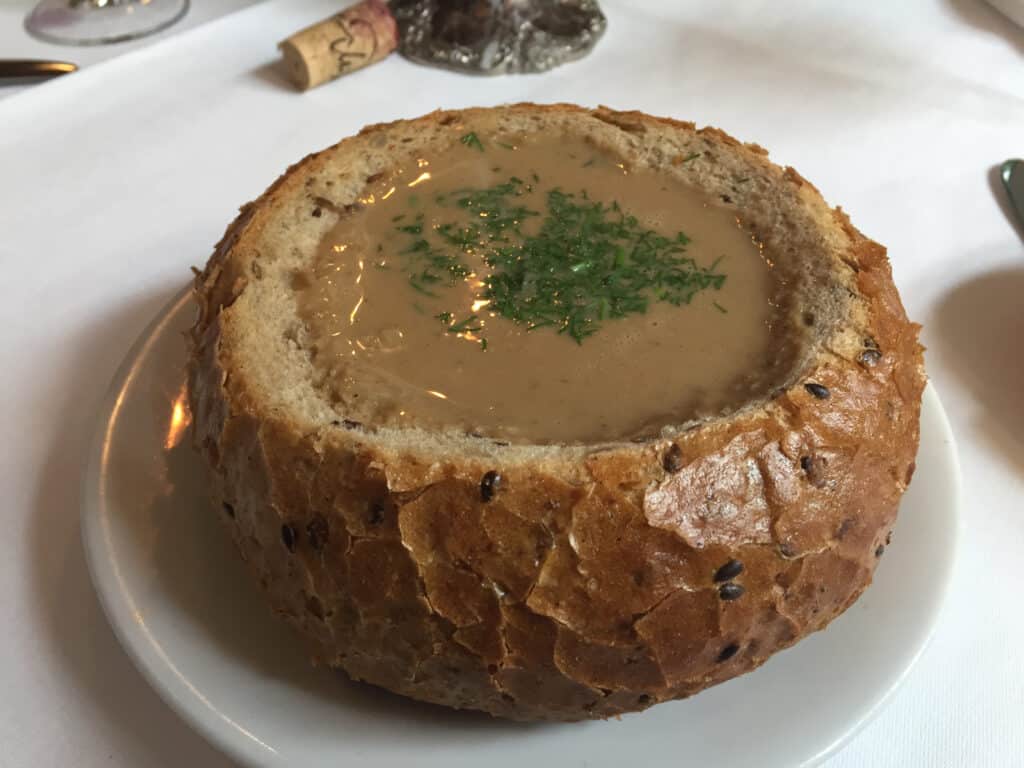
Where to stay in Krakow
When visiting Krakow, you have a variety of lodging options to choose from. Whether you prefer luxury hotels or budget-friendly accommodations, there is something for every traveler.
Budget Accommodations in Krakow
✔️100 m from The Main Square Market and Main Railway Station
✔️ Great restaurant
Mid-Range Accommodations in Krakow
✔️Quaint boutique hotel with old world charm
✔️ Onsite restaurant features Polish cuisine
Luxury Accommodations in Krakow
✔️Iconic hotel with 200+ year history
✔️ 1-minute walk to the main square
Our accommodation was at the Platinum Aparthotel. This was a convenient location just off the market square and easily accessible to the Old Town within a 15-minute walk.
Book a stay at Platinum Aparthotel
How big is Krakow?
Krakow, also known as Cracow, is the second largest city in Poland. It covers a total area of approximately 327 square kilometers or 126 square miles. The city has a population of about 780,000 people, as of the latest data available.
The Old Town Stare Miasto area covers nearly 40 hectares and is home to some of the city’s most iconic landmarks, including the Main Market Square, St. Mary’s Basilica, and the Cloth Hall. It is also a hub for restaurants, cafes, and street performers, making it the perfect place to soak in Krakow’s vibrant atmosphere.
Map of Krakow Old Town
Krakow – Know Before You Go
⏰ Time Zone: Central European Standard (GMT+1) (March to October is GMT+2)
✈️ Closest Airport: Kraków John Paul II International Airport (KRK)Airport
💰 Currency: Polish Złoty
🔌 Electricity Socket: In Poland, you’ll encounter two types of plugs: type C and type E. Type C consists of two round pins, while type E has two round pins and a hole for the socket’s male earthing pin. The electricity supply in Poland operates at 230V voltage and 50Hz frequency. For visitors from other countries, you’ll need this universal travel adaptor.
Books about Kraków
Get ready for your visit to the city with some reading:
| Product Image | Product Name / Primary Rating / Price | Primary Button |
|---|---|---|
|
||
|
||
|
Listen to our podcast about the places to see in Krakow
Hear about our travels in Krakow in our podcast about 9+ wonderful places you should visit in Krakow Poland.
More Articles For Krakow Tourists
If you’re visiting Krakow for more than a day, check out our Guide to Day Trips from Krakow.
Poland has a wealth of historical and interesting places to explore. Visit our Poland Resources page for more articles in Poland.
Conclusion
Krakow is truly a city that offers many outstanding places to visit. From its rich history and architecture to its vibrant culture and delicious cuisine, this city should be at the top of your travel bucket list.
It’s also relatively affordable compared to many other popular destinations in Europe.
Thank you for reading our article on outstanding places to visit in Krakow. Whether you are a first time visitor to Krakow or returning to explore more places in the city, we hope we’ve inspired your future trip.
Thanks for reading this article and we hope to see you at the places where we go. Happy travels!
Julie & Art
Learn more about us here
#visitkrakow
Pin it for later!

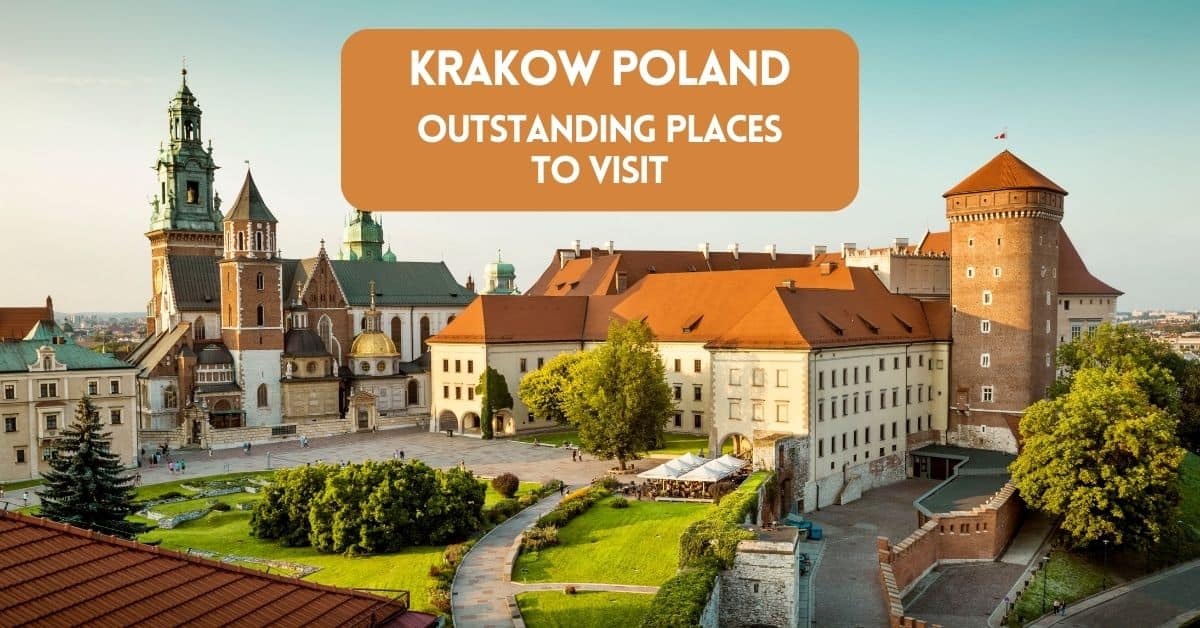
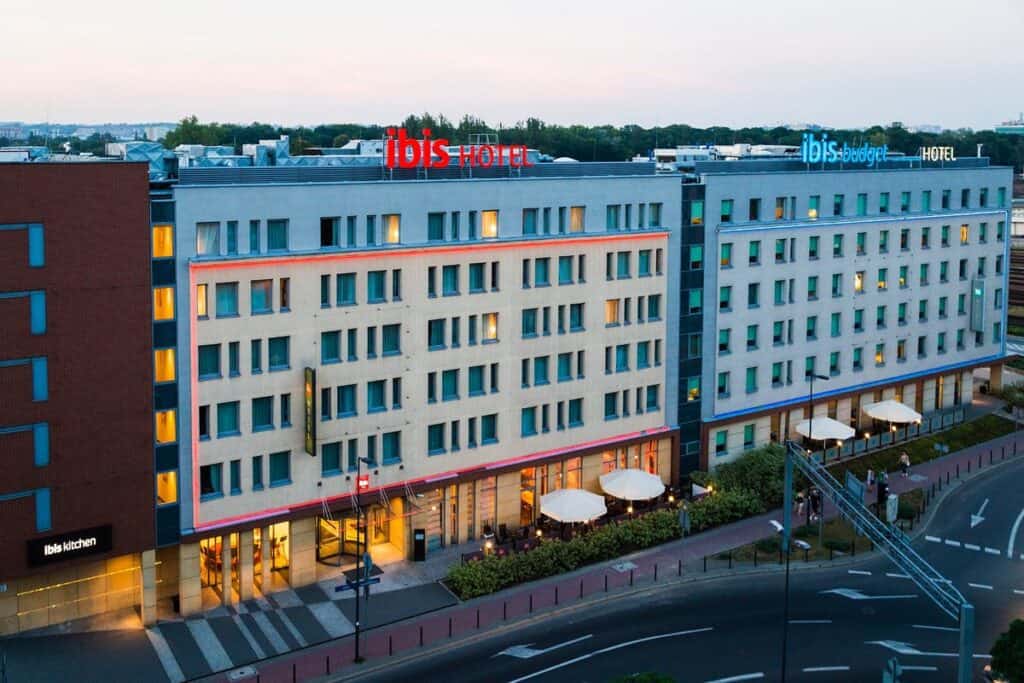
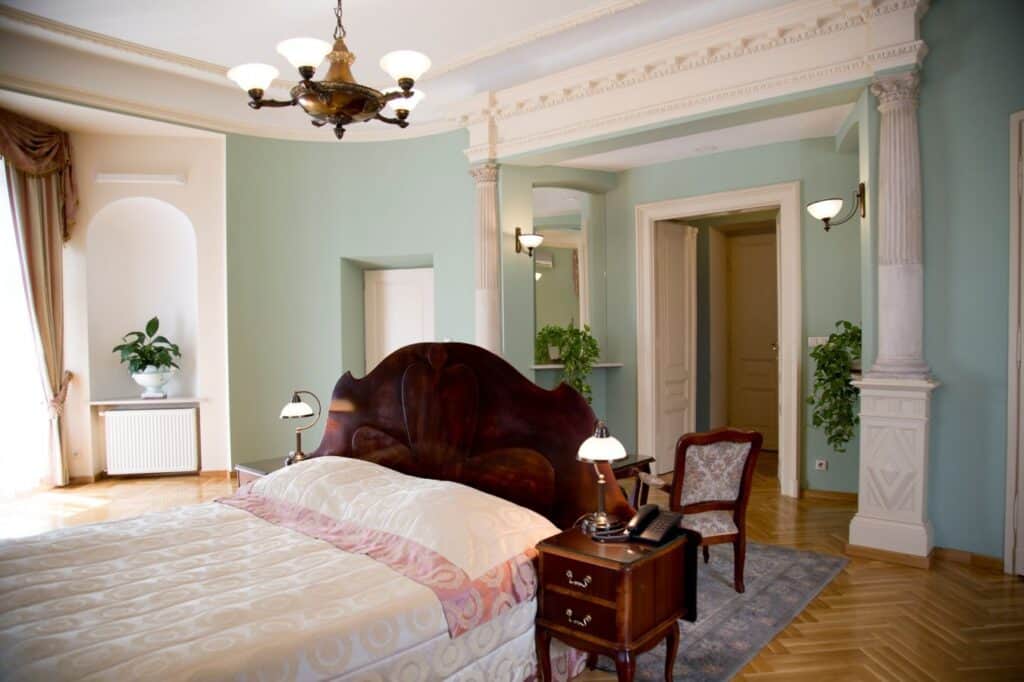
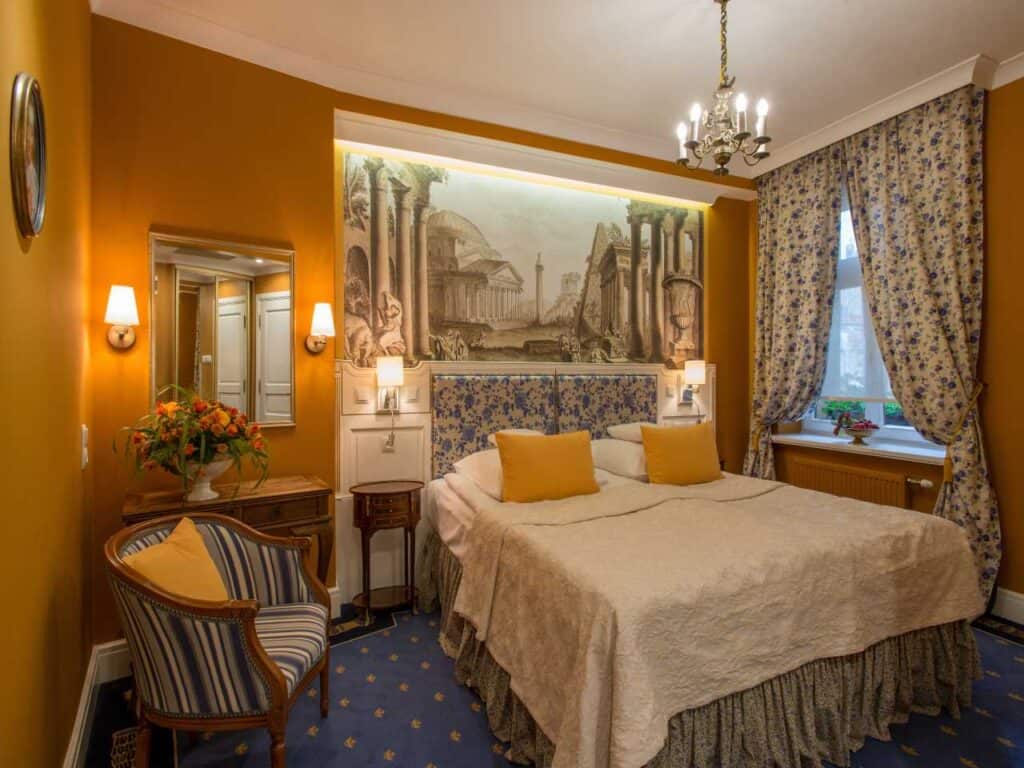
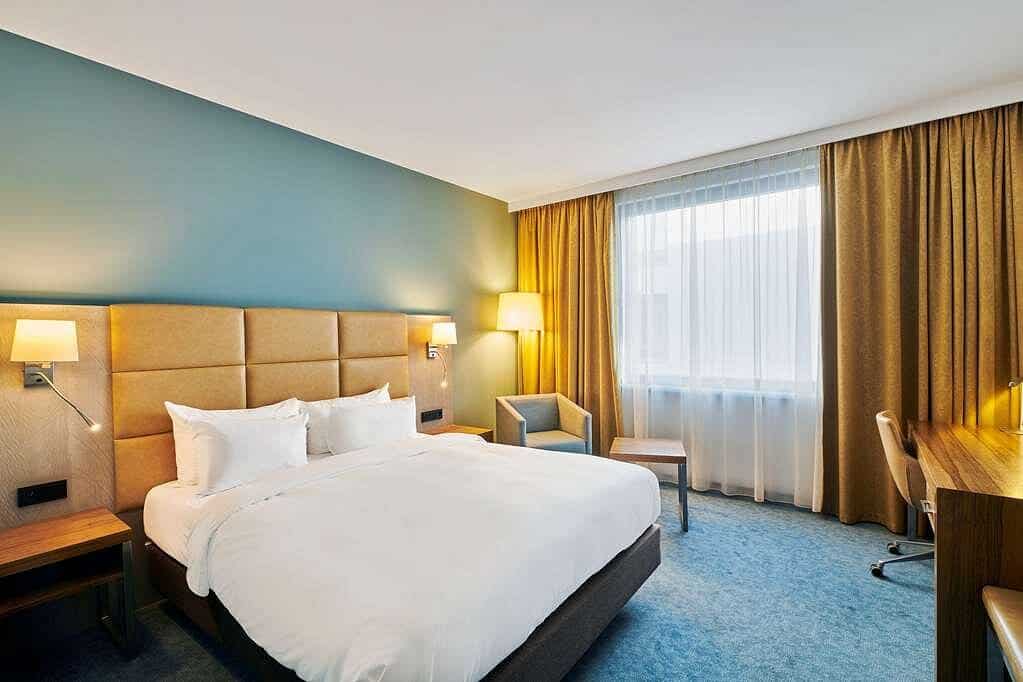
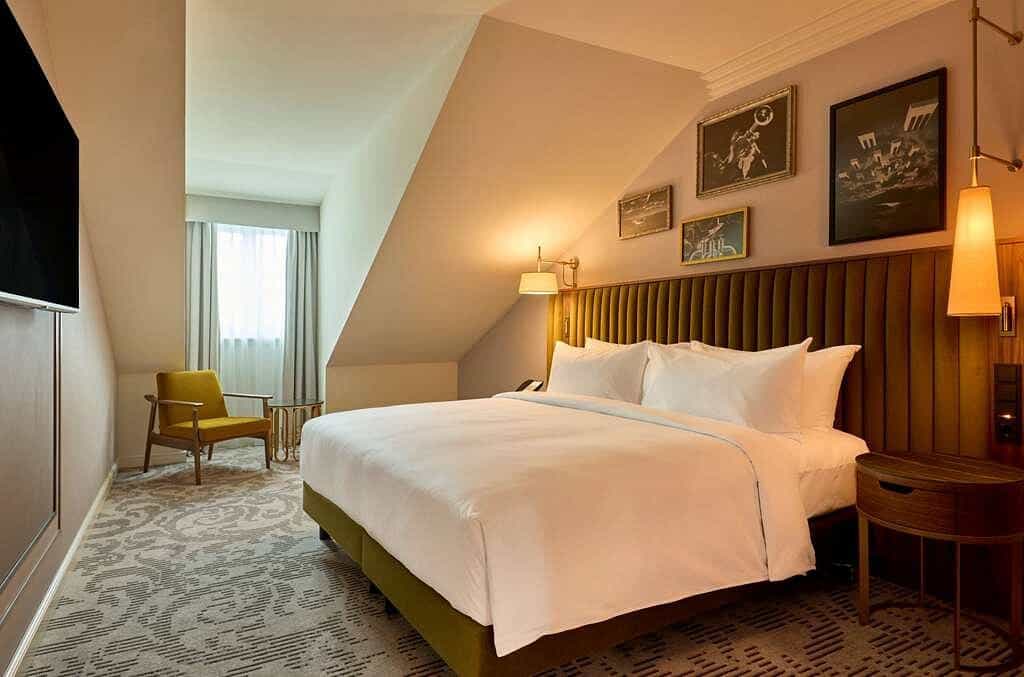
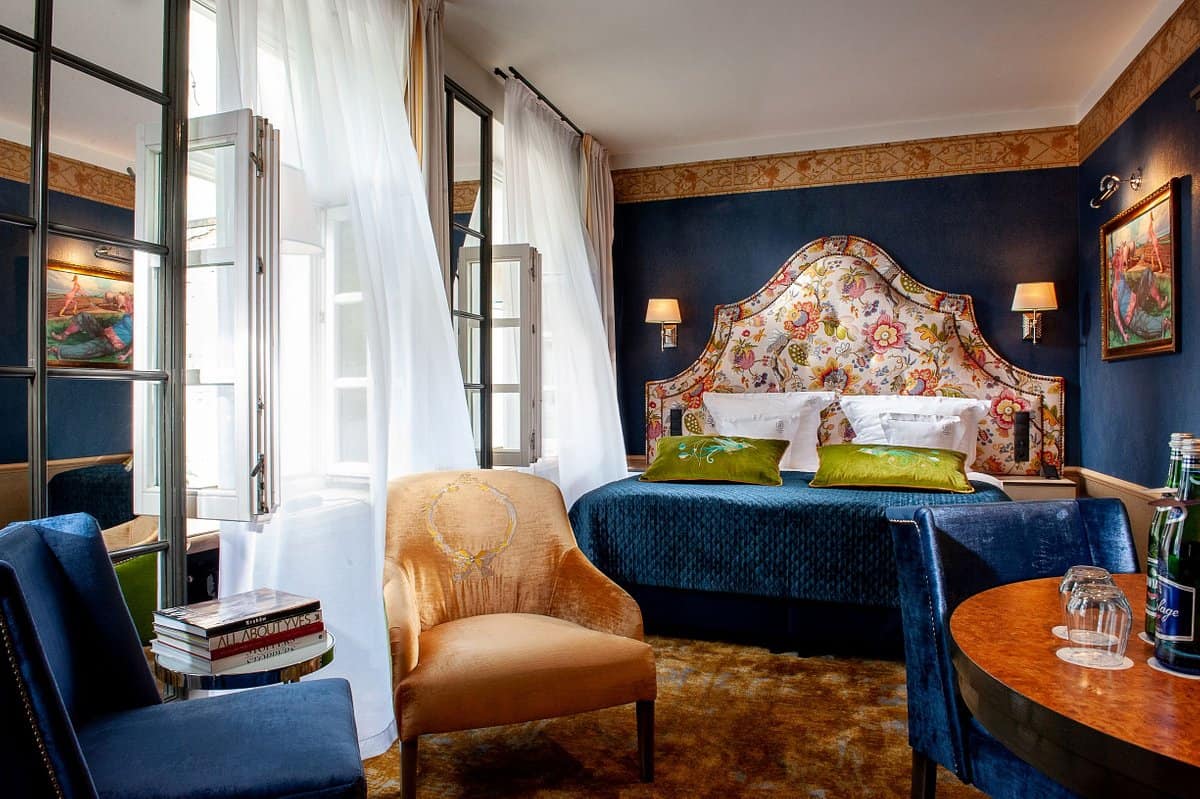
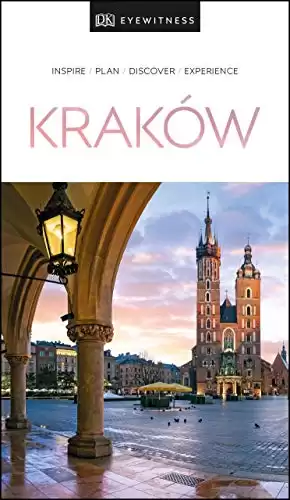
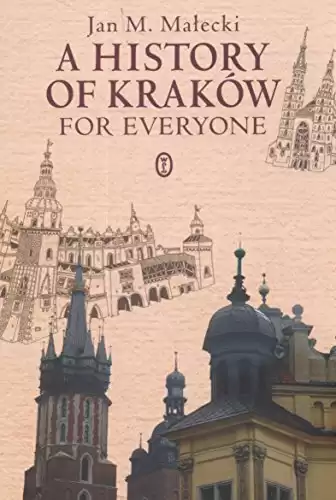
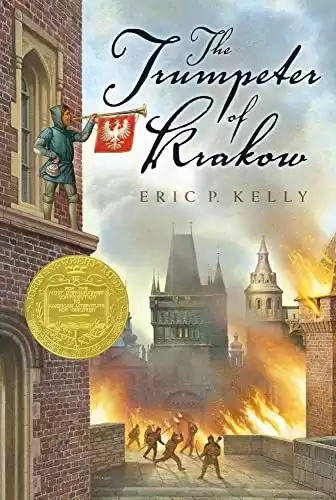
2 Comments
Comments are closed.